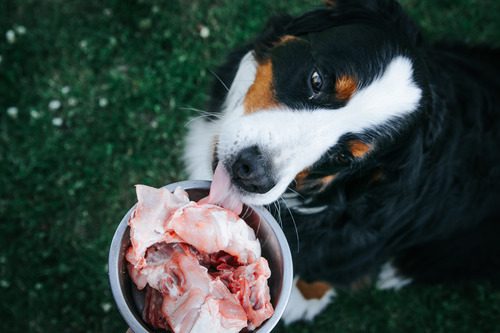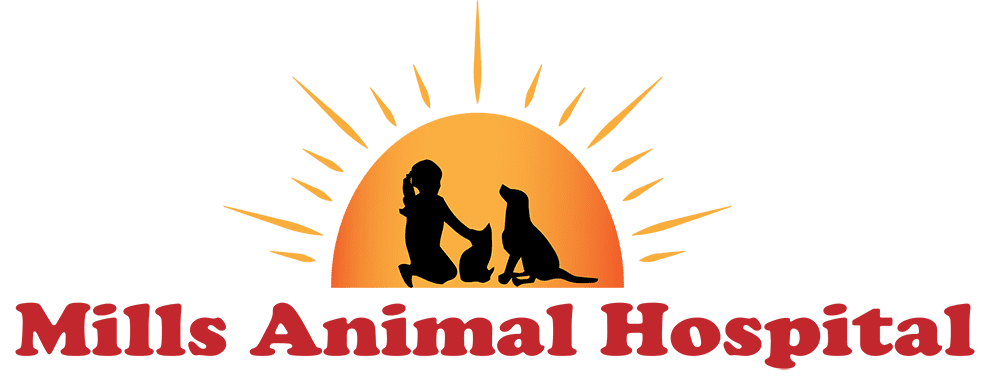Offering new foods to your dog can be a fun experience, but it’s necessary to ensure those foods are safe for your companion. You might wonder, “Can dogs eat turkey bones?” With turkey often being a centerpiece of holiday meals, be sure to know whether this treat is safe to share before offering it to your canine. While this blog does not replace professional veterinary advice, it will explore the risks and benefits of feeding turkey bones to dogs, and provide helpful tips from the experts at Mills Animal Hospital in Acworth, GA.

What Are the Risks of Feeding Turkey Bones to Dogs?
Feeding turkey bones to your dog can pose several serious risks:
Choking
Turkey bones, especially those that are cooked, can splinter easily. These splinters can become lodged in your dog’s throat, causing choking. Even if your dog manages to swallow the bone fragments, they can still present a significant danger.
Internal Injuries
The sharp edges of splintered turkey bones can puncture the gastrointestinal tract, leading to potentially life-threatening conditions like peritonitis. This situation requires immediate veterinary attention and can be extremely painful for your dog.
Digestive Blockages
If a bone fragment becomes stuck in your dog’s intestines, it can obstruct the digestive process. Symptoms of a blockage include vomiting, lethargy, and abdominal pain. This condition often necessitates surgical intervention.
How Can Raw Turkey Bones Benefit My Dog?
While cooked turkey bones are hazardous, raw turkey bones may offer some benefits when provided appropriately.
- Provide Nutritional Value: Raw turkey bones are rich in essential nutrients that can be beneficial for your dog’s health. They are a natural source of calcium and phosphorus, which are crucial for maintaining strong bones and teeth.
- Improve Dental Health: The act of gnawing on bones helps clean your dog’s teeth and gums, reducing the buildup of plaque and tartar, contributing to fresher breath and overall oral hygiene.
- Offer Mental Stimulation: Chewing is a natural behavior that can keep your dog engaged and mentally stimulated, helping to alleviate boredom and anxiety.
Tips to Safely Offer Turkey Bones to Your Dog
If you decide to give your dog raw turkey bones, follow these specific guidelines to ensure their safety:
Choose the Right Bones
Select raw turkey bones that are large enough to prevent choking. Larger, raw bones are less likely to splinter and can be safely chewed by your dog.
Supervise Your Dog
Always supervise your dog while they are chewing on bones, so you can intervene if they start to choke or if the bone breaks into dangerous pieces. Supervision can prevent accidents and ensure your dog’s well-being.
Limit the Frequency
Offer raw turkey bones as an occasional treat rather to help prevent potential health issues related to excessive bone consumption, such as constipation or nutrient imbalances.
Addressing Turkey Bone Ingestion
Despite your best efforts, your dog might manage to eat a turkey bone. Here’s how what you can do:
- Monitor for Symptoms: Keep a close eye on your dog for any signs of distress. Symptoms include vomiting, gagging, drooling, difficulty swallowing, or signs of abdominal pain. If you notice any of these symptoms, contact Mills Animal Hospital at (770) 903-5995.
- Contact Your Veterinarian: If your dog appears to be fine after consuming a turkey bone, you should still consult with your veterinarian at Mills Animal Hospital. They can provide guidance on the best next steps to take and whether your dog should be brought to the hospital.
- Avoid Home Remedies: Do not attempt any home remedies or induce vomiting without veterinary advice. Sometimes inducing vomiting can cause further harm, rather than help your dog. We recommend seeking professional guidance to ensure your dog’s safety.
What Are Pet-Friendly Treats to Offer Your Dog?
Instead of turkey bones, you’ll want to provide safe and healthy alternatives for your pet to enjoy. Consider these pet-friendly treats as alternatives:
Commercial Chew Toys
Purchase high-quality chew toys designed for dogs to provide a safe and enjoyable alternative. These toys are specifically made to withstand heavy chewing and as an additional benefit, can help keep your dog’s teeth clean and strong.
Dental Chews
Dental chews are another excellent option for your canine. Dental chews are formulated to reduce plaque and tartar buildup in addition to satisfying your dog’s natural chewing instincts. Look for products that are veterinarian-approved, but if in doubt, your veterinarian can provide recommendations.
Protecting Your Dog During Holiday Meals
As the holidays draw near, the meals we enjoy often involve a variety of foods that can be tempting for your dog as well. Be sure to take precautions to ensure their safety and prevent accidental ingestion of harmful items.
- Keep Food Out of Reach: During holiday gatherings, keep people food, including turkey bones safely away from your dog. Place dishes on high surfaces or in securely covered containers to prevent your dog from reaching them. Let your guests know about the importance of not feeding your dog table scraps.
- Create a Safe Space: This can be a quiet room or a comfortable crate where they can relax away from the hustle and bustle. Providing them with their own treats and toys can help keep them occupied and avoid temptation of unsafe foods.
- Educate Your Guests: Inform your guests about the risks of feeding turkey bones to your dog. Remind them to avoid giving your dog any table scraps, no matter how tempting it may be. Direct communication can prevent accidents and create a safe environment for your pet.
If you have any questions about your dog’s diet, or if you believe they’ve ingested something unsafe, please call Mills Animal Hospital in Acworth, GA, at (770) 903-5995.
